|
January 19, 2013 -
No. 3
The Significance of Second
Obama Presidency
Obama's Outlaw State
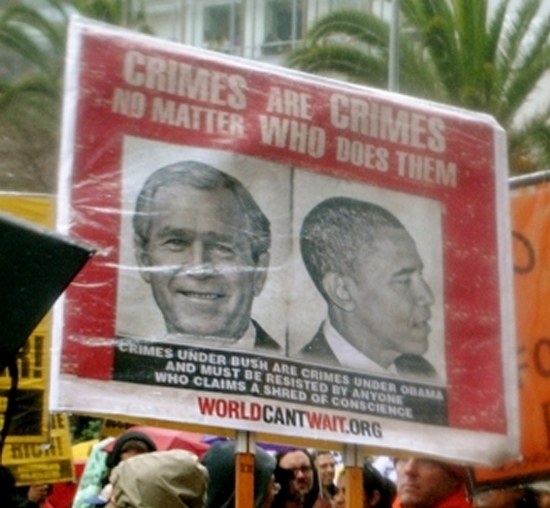 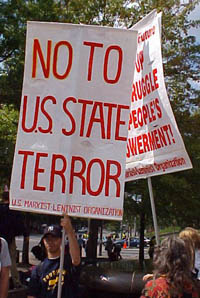 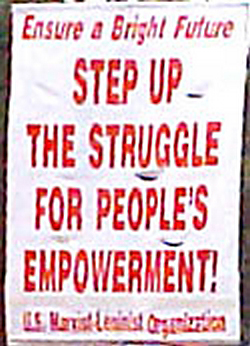
The Significance of Second Obama Presidency
• Obama's Outlaw State
The Scramble
for Africa Begins All Over Again
• No to Canada's
"Logistical Support" in Mali - Enver Villamizar
• Beware of Canada's
"Help" -
Charlie Vita
For Your
Information
• Military Intervention in
Mali: Special Operation to Recolonize Africa
- Alexander Mezyae
• Mali and the Scramble
for Africa - Ben Schreiner
• The Geopolitical
Reordering of Africa: U.S. Covert Support to Al
Qaeda in Northern Mali, France "Comes to the
Rescue" - Tony Cartalucci
The Significance of Obama's Second
Presidency
Obama's Outlaw State
Can the
world survive the Obama drone war doctrine?
One of the main features of Obama's second term
in office will be the unfettered promotion of his
so-called drone war doctrine. This is the reliance
of U.S. imperialism on drones to conduct targeted
assassinations, coupled with use of black ops to
foment civil wars, mayhem and chaos. This is a
desperate hope born out of anarchy that the U.S.
can prevail over its rivals, including both
competitors amongst the imperialist powers and
against developing nations' intent on making a way
for themselves and against the peoples of the
world fighting for their right to be.
The Obama drone war doctrine contends that the
security of the United States and its
empire-building project can be achieved through
the destruction of individual and collective
rights at home and abroad. This conception is
false and doomed to failure as it runs counter to
the trend of history towards the affirmation of
individual and collective rights. The security of
any modern nation lies in the fight for the rights
of all both nationally and internationally.
The objective and subjective conditions organized
into a coherent force by the workers' opposition
rebel against the Obama drone war doctrine and its
destruction of rights. The peoples of North
America bear an enormous social responsibility to
resist the Obama drone war doctrine and its
destruction of rights within Mexico, Canada, the
U.S. and throughout the world.
The unspoken aim of the Obama drone war doctrine
is to defend the monopoly right of U.S. private
interests to exploit the sovereign land, natural
resources and human potential of the entire world,
destroy resistance to this exploitation and
trampling of sovereign rights, and to deny
imperialist competitors access to those sovereign
lands and peoples.
Obama Drone War in Practice
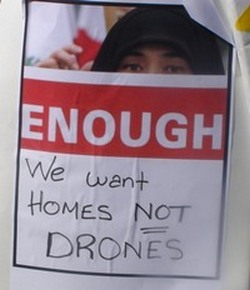 The Obama
drone war doctrine is a departure from the
Bush-Rumsfeld-Cheney shock and awe torture regime
even though it preserves the worst of their
legacy. The drone war doctrine gives Obama a new
narrative -- that the U.S. is no longer engaged in
any wars. It includes the practice of establishing
large numbers of Lily-Pad U.S. military
bases around the world. The land based Lily-Pad
bases contain drones, long- range missiles and
mobile Special Forces. The U.S. navy on the High
Seas favoured by the Bush administration no longer
predominates but will continue to play a role by
complementing the Lily-Pads along with
the traditional strategically placed larger
military bases with their extensive use of fighter
planes, bombers, ground forces and space weapons,
especially space spying and telecommunications. The Obama
drone war doctrine is a departure from the
Bush-Rumsfeld-Cheney shock and awe torture regime
even though it preserves the worst of their
legacy. The drone war doctrine gives Obama a new
narrative -- that the U.S. is no longer engaged in
any wars. It includes the practice of establishing
large numbers of Lily-Pad U.S. military
bases around the world. The land based Lily-Pad
bases contain drones, long- range missiles and
mobile Special Forces. The U.S. navy on the High
Seas favoured by the Bush administration no longer
predominates but will continue to play a role by
complementing the Lily-Pads along with
the traditional strategically placed larger
military bases with their extensive use of fighter
planes, bombers, ground forces and space weapons,
especially space spying and telecommunications.
A growing military base is Camp Lemonnier in
North Africa in Djibouti. The Washington Post
says Camp Lemonnier is the "busiest Predator drone
base outside of the Afghan war zone with 16 drone
flights a day." From there, drones can hit or spy
on targets in Yemen, Somalia, Sudan, Eritrea,
Ethiopia etc. Drones also operate out of
Afghanistan and Iraq bringing the entire Persian
Gulf, West and Central Asia and Horn of Africa
within the grasp of the U.S. military and its
extensive program of targeted assassinations and
random extrajudicial killings to terrorize the
people, including even U.S. citizens. The drone
that killed U.S. citizen Anwar al-Awlaki and his
16-year-old son Abdul in Northern Yemen is said to
have come from Camp Lemonnier.
The Post says tentacles of the U.S.
military already extend well across Africa. Lily-Pad
semi-clandestine bases with active daily drone
flights and secret operations involving Special
Forces exist in Burkina Faso, Mauritania, Uganda,
Ethiopia, Djibouti and Kenya with plans afoot to
open a new base in South Sudan. According to the
U.S. Africa Command (AFRICOM), "The Pentagon has
begun deploying 4,000 additional soldiers to 35
different African countries."
The Post reports further, "The Pentagon
is spending $8.1 million to upgrade a forward
operating base and airstrip in Mauritania, on the
western edge of the Sahara. The base is near the
border with strife-torn Mali."
The U.S. Army Times says, "Africa, in
particular, has emerged as a greater priority for
the U.S. government because terrorist groups there
have become an increasing threat to U.S. and
regional security."
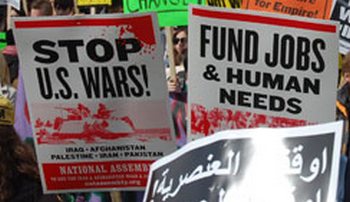 The
Obama drone war doctrine using advanced weaponry
further builds on the post-World War II building
of the U.S. Empire, which now controls vast sweeps
of the world. But economic and military pressure
from its own colossal armed forces and internal
rivalries and contradictions and those of its
competitors and the resistance of the peoples of
the world has forced U.S. imperialism to adjust
its methods. The traditional military occupation
arising from WWII using large bases is only
economically feasible if the occupied country can
pay for its occupation. This is the case in Japan,
South Korea and Germany. With the defeat of the
U.S. military's advance into the DPRK and its
subsequent defeat in Vietnam and the collapse of
the Soviet Union, the U.S. Empire has adjusted its
modus operandi. The
Obama drone war doctrine using advanced weaponry
further builds on the post-World War II building
of the U.S. Empire, which now controls vast sweeps
of the world. But economic and military pressure
from its own colossal armed forces and internal
rivalries and contradictions and those of its
competitors and the resistance of the peoples of
the world has forced U.S. imperialism to adjust
its methods. The traditional military occupation
arising from WWII using large bases is only
economically feasible if the occupied country can
pay for its occupation. This is the case in Japan,
South Korea and Germany. With the defeat of the
U.S. military's advance into the DPRK and its
subsequent defeat in Vietnam and the collapse of
the Soviet Union, the U.S. Empire has adjusted its
modus operandi.
Since the collapse of the Soviet Union, all its
Cold War definitions and rationale no longer hold
water and the U.S. is incapable of renewal. The
Obama drone war doctrine is a further degeneration
of unfettered U.S. power. From the post war
traditional use of constant military pressure on a
targeted country, the U.S. has systematically
resorted to the financing and fomenting of anarchy
and violence creating an atmosphere of chaos and
destruction that tears societies apart.
This precedent was set by George Bush senior with
the economic blockade, no fly zone and constant
aerial bombardment of Iraq prior to the U.S.
invasion and occupation. Similar chaos has been
part of the Afghanistan campaign for decades,
which has now been extended into Pakistan. Making
extensive use of NATO, the U.S. tore apart
Yugoslavia fomenting clan/ethnic/religious
sectarian bloodshed and strife followed with
direct NATO military strikes. Most recently the
U.S., again financing and organizing clan, ethnic
and religious sectarian violence and chaos and
with NATO and the Canadian military playing a
central role, destroyed the Gaddafi regime in
Libya leaving anarchy and violence in its wake,
which is spreading throughout Northwest Africa.
U.S./NATO/French forces have now directly attacked
Mali and are promoting sectarian violence in
Algeria. Similar wrecking continues apace in Syria
where a well-financed and armed force of
mercenaries is waging a destructive campaign
against the Assad regime.
The Entire World as a War Zone
The Obama drone war doctrine is one of endless
war that includes the entire world. The world is
viewed as lawless without any legal restrictions
on the U.S. instruments of power, including its
military, private contractors and spy agencies.
All equations based on past calculations are
meaningless in the face of the anarchy that
unfettered U.S. power has unleashed. Only the
organized resistance of the peoples of the world
can deal with the consequences of the unfettered
power that the Obama presidency in its hubris will
claim to control.
The drone war doctrine lowers the economic and
political cost of military intervention using
traditional ground forces. No laws of war are
recognized because no formal war is declared. No
sovereignty except that of the U.S. Empire is
recognized, which has turned the entire world into
a war zone, a killing field.
Drones, which enable lawless extra-judicial
targeted killing even of U.S. citizens, will bring
the U.S. state terror to ever larger sections of
the population. From targeting Native Americans,
African Americans and Hispanics, now everyone is
considered fair game.
Attempts to Justify and Give a Veneer of
Legality to Drone Warfare
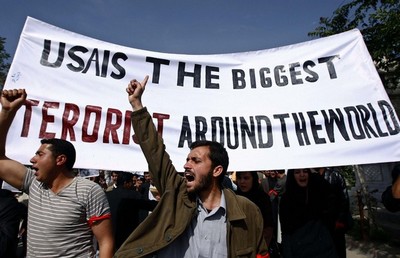 President
Obama's administration is reportedly drawing up a
rulebook that will set out the circumstances in
which targeted assassination by unmanned drones is
justified, including the killing of U.S. citizens.
Such a codification is meant to negate in theory
as well as practice the international and national
laws that prohibit such medieval practices,
especially those laws that arose from the defeat
of fascism during World War II. President
Obama's administration is reportedly drawing up a
rulebook that will set out the circumstances in
which targeted assassination by unmanned drones is
justified, including the killing of U.S. citizens.
Such a codification is meant to negate in theory
as well as practice the international and national
laws that prohibit such medieval practices,
especially those laws that arose from the defeat
of fascism during World War II.
Obama wants a legal framework to justify what
cannot be justified, to justify in law the open
violation of rights, which the U.S. Empire is now
routinely practicing.
Referring to drone warfare in an interview with
Jon Stewart on The Daily Show October
18, Obama said: "One of the things we've got to do
is put legal architecture in place and we need
congressional help in order to do that, to make
sure that not only am I reined in but any
president is reined in, in terms of some of the
decisions we're making [regarding targeted
killings, interference in the affairs of sovereign
nations, invasions etc]."
During the recent presidential election when
Obama faced the possibility he might not be
re-elected, the New York Times reported
that his administration began work to "develop
explicit rules for the targeted killing of
terrorists by unmanned drones, so that a new
president would inherit clear standards and
procedures."
This goes far beyond making the practice of
governing a process of pragmatic policy objectives
devoid of principles. A policy objective set to
determine the scope of the government's authority
to carry out targeted killings is an unfettered
police power. The previous George Bush
administration similarly made torture a police
power saying roughly that it could not be accused
of torture because the definition of torture is
imprecise.
The state authority to kill and jail people
without due process or declaration of war appears
as a reintroduction of the medieval practices of
feuding princes based on might makes right.
Similarly, the German Nazi Reich of Adolf Hitler
was guilty of these practices, most significantly
the surprise invasion of Czechoslovakia and Poland
and subsequently the Soviet Union in 1941, despite
the non-aggression pact of 1939.
However, no precedent exists for the kind of
police powers the Obama presidency is usurping
unleashing mayhem that turns on its own master and
requires evermore devious killers to kill the
killers. The police powers are unlike those of the
past targeting minorities, political opponents,
crime families or simply the "bad guys." They
assume a dimension where the "good guys" and "bad
guys" do not seem to be comprised of state
authorities themselves but rather elements
fighting a turf war, even within its own ruling
class, in which the people are victims.
Drones are now routinely used along both the
Mexican and Canadian borders, sanctioned by the
new state of North American monopolies into which
both Canada and Mexico have been absorbed. All of
it shows that today there are no limits. The U.S.
authority is not only clashing with the conditions
within the U.S. and the entire world. It is
overwhelming itself in the process.
Use of Facile Labels to Excuse or Justify
Targeted Assassinations and Collateral Killing of
Civilians
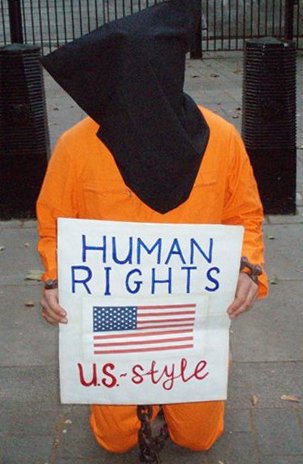 The
use of phony human rights' definitions to
dehumanize war and promote its acceptance as a
legitimate method to settle disputes and
differences amongst the people form part of the
Obama drone war doctrine. The doctrine labels
individuals and states with repugnant terms, which
is considered enough of a high ideal to take armed
action. Labelling individuals and states as
terrorist or rogue and denying them their rights
is incompatible with a modern state. The
use of phony human rights' definitions to
dehumanize war and promote its acceptance as a
legitimate method to settle disputes and
differences amongst the people form part of the
Obama drone war doctrine. The doctrine labels
individuals and states with repugnant terms, which
is considered enough of a high ideal to take armed
action. Labelling individuals and states as
terrorist or rogue and denying them their rights
is incompatible with a modern state.
Individuals committing criminal acts, such as car
bombings and hijackings can be pursued through
lawful methods and criminal proceedings. A modern
lawful state cannot use labels to bypass the legal
system within its national boundaries or
internationally or it becomes a lawless state, a
government unfit to rule, an authority in
contradiction with modern conditions as is today
the case with the U.S. state and its relations
with those with which it is colluding and
contending for the dominant positions.
French President François Hollande
declares blithely that certain elements causing
trouble in North Mali are "Jihadists and
terrorists" giving French imperialism carte
blanche to do whatever it wants to defend
its economic and political interests in West
Africa.
Principles are rejected and replaced with
pragmatic assertions based on whether the denial
of rights works or not, whether it is successful
or not. The U.S. movie Zero Dark Thirty
says torture worked in finding Osama bin Laden
therefore torture is acceptable. Many in the U.S.
authority contend U.S. drone killings work in
Pakistan and have seriously weakened the enemy.
Devoid of principles, you cannot argue with
success. However, the debate is not whether drone
warfare works or not. The debate is how to
organize to resist those state authorities that
deprive the people of their rights, rights that
they possess by virtue of being human. The fight
to affirm the rights of all is the only road
forward for humanity and the only way our
individual and collective security can be upheld
and guaranteed.
Necessity for Organized Opposition to Obama
Drone War Doctrine
The people will continue to organize to oppose
these reckless and illegal actions of U.S.
imperialism, whose unfettered power have been
declared the norm, a precedent that other big
powers follow with impunity until those big powers
directly and unavoidably confront one another in
open catastrophic warfare.
The peoples of the world reject the lawless U.S.
imperialist world of anarchy and violence.
Humanity and its societies cannot survive in such
a world; only by stepping up their acts of
organized resistance to the Obama drone war
doctrine can we create the conditions necessary to
affirm the rights of all!
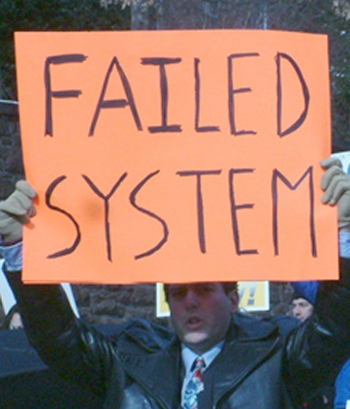 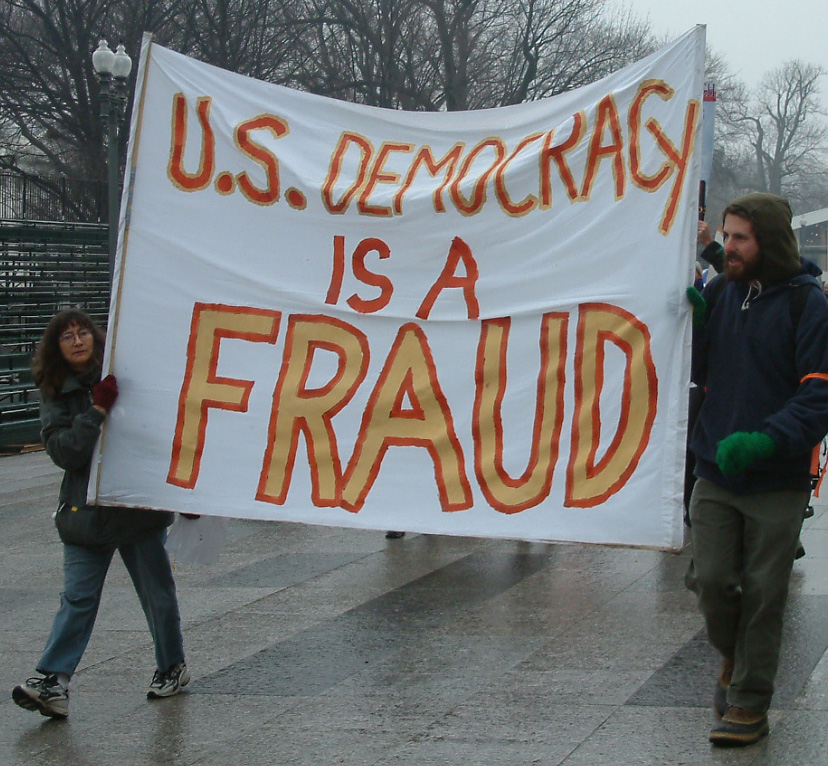 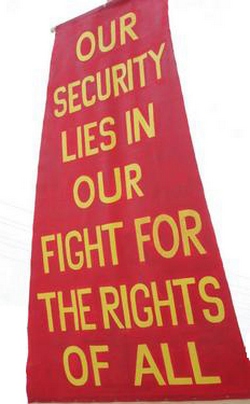

The Scramble for Africa Begins All
Over Again
No to Canada's "Logistical Support" in Mali
- Enver Villamizar -
On January 14, Prime Minister Stephen Harper
revealed that the Canadian government will
participate in a French-led military intervention
in the African country of Mali, a former French
colony. Harper announced that Canada will provide
a Royal Canadian Air Force C-17 military transport
aircraft "for a period of one week" in response to
a request from the French government for military
assistance. Already it is reported that this
assistance is to be extended beyond one week.
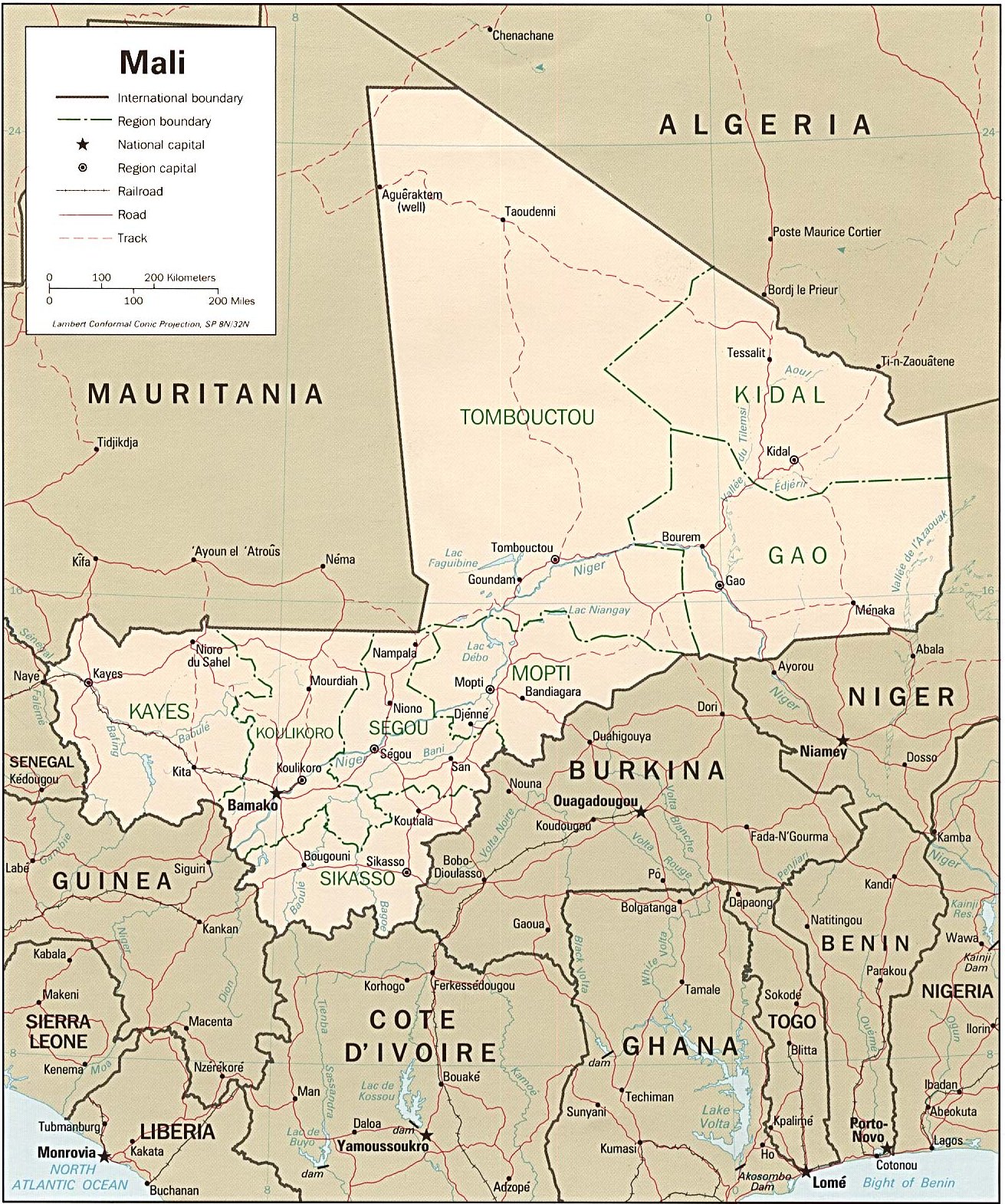
Map of
Mali. Click to enlarge.
|
Harper said the aircraft is providing "logistical
support" and that it will not participate in
"direct combat" or operate in zones where direct
combat is taking place. This claim is in
contradiction with the plane's cargo -- daily
shipments of military hardware and equipment to
French forces that have begun a ground offensive
in Mali against those it says are terrorists.
Officials from Canada and other Western nations
are reported to have said the plane could also be
used to transport soldiers from other African
nations to Mali, if the French ask.
Harper said that in addition to the military
transport, "Canada will continue to provide
humanitarian aid and development assistance to
this region to help alleviate the worsening
humanitarian conditions in the region."
The Harper government follows the colonial logic
that Canada is assisting "the poor Africans" by
preventing the continent from becoming a base for
terrorism. "Canada's foreign policy is rooted in
respect for freedom, democracy, human rights and
the rule of law. We will support our allies as
they seek to re-establish security and democracy
for the people of Mali in a manner consistent with
international law," the Prime Minister's statement
said.
Canada's involvement in Mali is similar to its
participation in Operation Desert Fox, a three-day
bombing campaign against Iraq launched by U.S.
President Bill Clinton in December 1998. In that
operation, also carried out under the veneer of
humanitarianism, Canadian planes were used to
transport the instruments of attack used to soften
up Iraq for George W. Bush's eventual full scale
invasion in 2003.
The Harper government has been steadily
increasing its military presence in Africa,
especially in the Sahel region.[1]
It was recently announced that 50 Canadian Special
Forces will be sent for "training" to Mauritania,
which shares an eastern border with Mali. Canadian
Special Forces themselves are said to be"training"
the military forces of Niger, another country
which neighbours Mali to the east, which is
reported to be preparing to send troops as part of
an eventual regional invasion force. As well,
Canada is presently building three military bases
in Africa. One is located in Senegal which
neighbours Mali to the west, with another in Kenya
and one in Tanzania in east Africa.
Notably absent from the Prime Minister's claims
of Canada's selfless humanitarian assistance in
Mali, is the fact that Canadian mining firms have
major holdings in the north of Mali, as is the
case for other western countries. His remarks
cover up that Canada's participation in the
foreign intervention in Mali is about securing the
private interests of mining monopolies to
intensify the exploitation of the peoples of
Africa and their natural resources, not
humanitarian concerns.
These announcements reveal the Harper government
is embroiling Canada in another military
intervention in Africa, while it maintains its
military presence in Afghanistan and has marauding
ships in the Arabian Sea on standby for a possible
role in Syria. As in the case of Libya, the
government says it has a mandate to intervene in
Mali based on a UN Security Council resolution.
This one calls for "assistance" to the Malian
Defence and Security Forces based on the claim
that Mali is becoming a base for terrorism in
Africa.
The hypocrisy of Canada's stand is odious. It
chooses to oppose or take no action on numerous UN
resolutions calling for Israel to end its
occupation of Palestine and for the United States
to end the colonial status of Puerto Rico and drop
its blockade of Cuba. However, when it serves
private monopoly interests such as those of
Canadian mining companies, the Harper government
uses UN resolutions to justify violating the very
principles upon which the UN is based..
The claim that intervening in an internal matter
in Mali is consistent with international law --
something completely contradictory to
international law -- reveals just how self-serving
the words and actions of the Harper government
are, and why they deserve nothing but contempt
from the Canadian working class and people.
Meeting of the
African Democratic Rally (Rassemblement
Démocratique Africain -- RDA) in
Bamako, 1957 (then French Sudan, presently
Mali). Founded in Bamako in 1946, the RDA was
a driving force for de-colonization and
independence in the colonies of French West
Africa.
Note
1. The Sahel covers (from west to east)
parts of Senegal, Mauritania, Mali, Algeria and
Niger, Chad, Sudan, South Sudan and Eritrea.

Beware of Canada's "Help"
- Charlie Vita -
While the Harper government is facilitating the
dispossession of First Nations of their lands and
resources so that mining and other monopolies can
get their dirty hands on them, using
disinformation about the need for "transparency
and accountability" to impose fee simple onto
First Nations' territories, it is using similar
"white man's burden" tactics to push the same
interests internationally.
On January 9, during a visit to Canada by Dr.
Thomas Boni Yayi, President of the Republic of
Benin and Chairperson of the African Union (AU),
Prime Minister Stephen Harper announced that
Canada intends to "help African countries manage
their natural resources responsibly and
transparently, which will contribute to
sustainable economic development."
 In the same
paternalistic fashion the Harper government speaks
of the necessity to impose 19th century colonial
arrangements on First Nations to "help them"
release their "potential," Harper stated: "The
development of mining, oil and gas resources in
Africa is critical to the future prosperity of the
continent. The support announced today will help
African countries manage their natural resources
responsibly and transparently with a view to
accelerating sustainable economic growth, creating
jobs and reducing poverty." In the same
paternalistic fashion the Harper government speaks
of the necessity to impose 19th century colonial
arrangements on First Nations to "help them"
release their "potential," Harper stated: "The
development of mining, oil and gas resources in
Africa is critical to the future prosperity of the
continent. The support announced today will help
African countries manage their natural resources
responsibly and transparently with a view to
accelerating sustainable economic growth, creating
jobs and reducing poverty."
When the Harper government speaks about
prosperity, it has nothing to do with the
well-being of the people. It is referring to what
the Harperites call "free trade" -- the ability to
securely sell their resources to the monopolies
without any opposition from the people. According
to the government's announcement, Canada is
providing "support" to the African Mineral
Development Centre through the United Nations
Economic Commission for Africa: "The Centre will
deliver guidance and policy advice to African
countries on how to manage their extractive
sectors responsibly and transparently. The Centre
will also provide a forum focused on generating
innovative approaches to increase the contribution
of those sectors to reduce poverty in Africa,
resulting in positive development impacts. This
initiative supports the African Union's commitment
to realize the transparent, equitable, and optimal
use of Africa's mineral resources."
Canada's contribution to the African Mineral
Development Centre is part of the Government's
so-called Corporate Social Responsibility Strategy
aimed at trying to prevent resistance to Canadian
and other monopolies operating around the world.
The government claims the strategy is for "helping
resource-rich developing countries utilize the
extraction of natural resources to promote and
accelerate sustainable economic growth, create
jobs and reduce poverty." The strategy includes
the establishment of the Canadian International
Institute for Extractive Industries and
Development, and support to the Extractive
Industry Transparency Initiative and Extractive
Industries Technical Advisory Facility.
It was also announced during the visit that
Harper and Boni Yayi have signed the Canada-Benin
Foreign Investment Promotion and Protection
Agreement (FIPA). According to the government
announcement the agreement signals that the
Canadian government is "committed to creating the
right conditions for Canadian businesses to
compete and succeed internationally, which
generates jobs and economic growth here at home.
The investment agreement signed today will provide
better protection for Canadian companies operating
in Benin and further strengthen economic ties
between our two countries."

For Your Information
Military Intervention in Mali:
Special Operation to Recolonize Africa
- Alexander Mezyae -
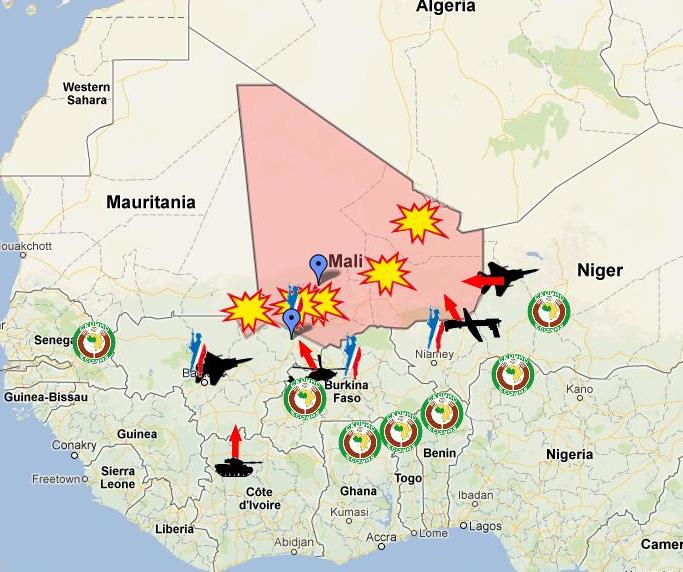 Click to
view interactive map showing recent foreign
intervention in Mali. (Jeune Afrique)
Click to
view interactive map showing recent foreign
intervention in Mali. (Jeune Afrique)The military operation in Mali launched on
January 11 is another vivid example of special
activities aimed at recolonization of the African
continent. It's an orderly and consistent capture
of new African territories by Western powers. They
have got hold of Sudan by dismembering it (taking
away the oil deposits from the major part of the
country), the Nigerian oilfields have been
captured in accordance with the International
Court of Justice rulings,[1]
Libya has been captured as a result of direct
military intervention, Cote D'Ivoire has been
conquered thanks to a small-scale military action
conducted under the aegis of the United Nations.
The way to do the things differ, but the result is
the same.
The Process of Recolonization Picks Up Momentum
in Africa
The mistakes of previous aggressive actions were
taken into consideration while occupying Mali.
Today everyone is sure the West is defending
Mali's sovereignty and territorial integrity. Not
exactly so, as some facts tell us. In reality it
was not in 2011-2012 when the terrorist groups
appeared in the north of the country. They had
been organizing and conducting activities there
for dozens of years.[2]
The situation exploded because the Libyan weapons
were captured after Gaddafi's overthrow. The
military materials didn't get to Mali by
themselves; there are facts to prove France was
involved in their transfer from Libya.
The very logic of events in the North of Mali in
2012 proves it is a well-orchestrated performance
aimed at preparing the public opinion for "an
imperative of military intervention". That's how
it was arranged that Libyan arms spread around and
wound up in the hands of Tuaregs. It incited
military actions. But pretty soon the Tuaregs
understood they were being used and started to
dissociate themselves from the independence they
had declared previously. The National Movement for
the Liberation of Azawad (French: Mouvement
National pour la Libération de l'Azawad;
MNLA) said the declaration of independence was "an
attempt to draw international attention to the
plight of the population in the north" and
expressed willingness to hold talks.[3]
That's what the National Movement for the
Liberation of Azawad was attacked for by real
perpetrators of the provocation -- the Al-Qaeda in
the Islamic Maghreb (AQIM) and the Islamists of
Movement for Unity and Jihad in West Africa (MUJWA
or MUJAO). Ansar Dine said it was ready to join
without delay. At the November meeting in
Ouagadougou, Burkina Faso, the group said it
rejected violence, extremism and terrorism and
assumed the responsibility for fighting organized
crime across the border.[4]
The Ansar Dine's turn around led to its
involvement into fighting. In November combat
actions were sparked, the National Movement for
the Liberation of Azawad fought the opposing
Al-Qaeda in the Islamic Maghreb and the Movement
for Unity and Jihad in West Africa. By the end of
November Ansar Dine waged combat actions against
the Movement for Unity and Jihad in West Africa
forces in the south-western part of Timbuktu.
Finally, all these battles made part of the
strategy aimed at the destabilization of Mali. All
the events described here take place against the
background of jihad and terrorist groups coming to
the North of Mali to reinforce the armed
formations.[5]
The Mali's northern terrorist land has really
become international while getting support from
all leading terrorist forces in the region,
including the well-known Nigerian Boco Harum.
According to the United Nations Secretary
General's estimations, the capture of the northern
part of the country resulted in around half a
million refugees and over 200 thousand migrants
inside the country. The humanitarian disaster
spread to all neighboring countries. That was the
goal. All Muslim shrines in Timbuktu and other
Sahara's ancient historical centers were destroyed
to strengthen the effect. The actions had no other
mission but to "shock" international community and
make it realize a military intervention was an
"imperative." That's the right context for making
out what was behind the state coup that took place
in Mali in March 2012, a few days before the
presidential election President Amadou Toumani
Toure was toppled. There seemed to be no logic in
staging the coup (they toppled the president who
was not a candidate for the next term), but it can
be easily explained by the fact that the President
and the most probable winners were all opponents
of the Western military intervention.
After the coup, the idea of foreign intervention
received a new strong impetus. The new government
of Mali asks the United Nations for military
assistance and launches a complaint to the
International Criminal Court. But the concept of
military intervention was still a matter of
internal strife between the supporters of the
Western "assistance" and inter-African military
mission. Probably these two different approaches
were the main reason for failure of the attempted
coup at the end of April[6]
and then for a new military coup that swept away
Prime-Minister Modibo Diarra.
It's not an occasion that the United Nations
Security Council resolutely condemned the then
ongoing intervention of Mali's military and
security forces into the activities of Mali's
transitional government. It expressed its
readiness to tackle the issue of imposing
sanctions against those who breached the
constitutional order. Thus, it's not the Al
Qaeda's leaders but rather the Mali's military who
was threatened with the Security Council
sanctions!!!
At last, the United Nations Security Council's
resolution N 2085 was adopted on December 20, 2012
authorizing the military intervention in the
country.[7] The
African-led International Support Mission to Mali
(AFISMA) was allowed to be deployed. The force is
to include Malian (5000 men strong) and
international (3300) forces. The concept was
worked out by Malian authorities together with
"partners" and approved by the African Union and
ECOWAS. Now, who are the Malian partners? The USA,
France, Germany, Canada, Algeria, Mauritania and
Niger.
At the beginning of January, Al Qaeda forces in
the northern part of the country adopted a
behavior that ran contrary to logic; they launched
an offensive to the South. The city of Kona was
captured on January 7. From geographical point of
view the city is of critical importance, it is
situated at the conditional border between the
country's North and South, so the action actually
meant the start of offensive against the territory
where the major part of population lives. In case
the offensive had any military importance for Al
Qaeda, it could have been launched before the
resolution 2085, for instance right after a number
of coups in Bamako or any other time suitable for
the Al-Qaeda in the Islamic Maghreb. At that, it
is launched right after the ruling on
international military operation. The only thing
the offensive could be seen as is a provocation of
immediate invasion, not anything else. In the
evening of January10 Interim Mali President
Dionkunda Traore declared total mobilization and
the state of emergency.[8]
On January 11 French forces landed in Mali.
Information agencies mention other participants of
the operation (Senegal, Niger); still everyone
knows who plays the leading part. By the way it
became clear on the very day the resolution 2085
was adopted, when the Malian Minister of Foreign
Affairs said thank you among other things to all
UN Security Council members but expressed special
gratitude to France.[9]
It should be noted the information on the ECOWAS
decision to launch immediate deployment of troops
was made public right after the news that the
French force was on the way. That is the French
started the operation before the physical arrival
of African troops.
The perfectly arranged information campaign
highlighting the "international intervention in
Mali" has one drawback -- there is no reasonable
explanation of what is behind the Al-Qaeda in the
Islamic Maghreb's actions. Today they talk about
the attempts to make the northern part of Mali a
long-time base. But Al Qaeda had been doing it for
the last dozen of years without attracting
attention. In reality the current AQIM's actions
are flagrantly provocative aimed at giving a
pretext for foreign intervention.
Thus, a special operation aimed at recolonization
of Africa took place at the beginning of the year.
There is a rivalry between three main actors,
which are the United States, France and China.
China resorts to economic expansion, while the two
Western nations rely on military intervention. One
should give the devil his due -- the mistakes made
during the information wars related to the events
in Libya and Cote D'Ivoire are corrected in
January 2013. The conquest of those countries was
explained by "humanitarian" reasons, but the
information was presented in a clumsy and
unconvincing way. Today the international
community is praising the French invasion to free
Mali. Apparently a military mission is needed. But
the country faces a hard choice: Islamists or
French troops. Any way Mali will have to pay a
high price for freedom: giving away its
sovereignty, enormous mineral resources and the
loss of independence for many years. According to
the President of France Francois Hollande, the
French troops will stay in Mali as long as needed.[10] It's not in vain
the toppled President Amadou Toure used to say
Paris is more dangerous than Timbuktu!
Africa has always been and still is a testing
ground for various Western political and military
scenarios.[11]
Not only African states but Russia as well should
attentively follow the way the military
intervention is worked out and implemented
successfully so far, while pursuing the declared
goal of "guaranteeing freedom from Islamists". It
has special importance taking into consideration
the attempts of the West to discredit the power in
Russia and encouraging Islamists activities on the
territory of the Russian Federation.
Notes
1. Cameroon v.
Nigeria. UN International Court of
Justice ruling, October 10, 2002, //
International Court of Justice official website:
http://www.icj-cij.org/docket/files/94/7453.pdf.
2. Here, it's interesting to
watch the movie called September 11 shot by
Burkina Faso director Idrissa Ouedraogo back in
2002. It tells a story of local boys keeping
trace of bin Laden hiding in Burkina Faso a
Mali's neighboring state in the North!.. Those
days the movie was perceived as a comedy.
3. MNLA representative
speaking on French TV: Le MNLA prêt
à négocier pour lutter contre
Al-Qaïda:
https://www.youtube.com/watch?v=RLHbrXBJ2Hw.
4. Report of the
Secretary-General on the situation in Mali,
November 29, 2012. // UN Document S/2012/894 ,
p.11.
5. United Nations Security
Council session verbatim report, December 5,
2012, //UN Document S/PV.6879, p.2.
6. The coup attempts in
response to the coup on March 22, 2012, when
President Amadou Toumani Touré was
overthrown.
7. Nine United Nations
Security Council's members were the authors of
the draft resolution, including Germany,
Columbia, Morocco, Portugal, Great Britain, the
United States of America, Togo, France and South
Africa. Luxemburg, a non-member, was among the
authors too.
8. Mali's interim president's
national address, January 11, 2013: Discours du
Président et déclaration de l'Etat
d'Urgence:
https://www.youtube.com/watch?v=FTyH64p_7bQ.
9. The United Nations
Security Council session, verbatim report,
December 20, 2012. Actually the Foreign Minister
of Mali let know that France was behind the
resolution's approval! For instance, he said," I
would in particular like to thank France, its
people, President and Government, who very early
on understood that the presence in northern Mali
of heavily armed AQMI, MUJAO and affiliated
extremists and terrorists posed an immediate
threat to international peace and security.
France spared no effort in ensuring that the
Security Council assumed its responsibilities"
UN Document: S/PV.6898.. According to the Malian
minister the United Nations Security Council
would have failed to assume its responsibilities
without France! It is a very important fact
testifying to who actually has pushed through
the decision on military action in Mali.
10.
http://www.fondsk.ru/news/2013/01/12/v-mali-objavlena-vseobschaja-mobiliz
acija.html
11. More in detail,: A.
Mezyaev., Africa as a Testing Ground for "New
International Law"//The Africa's security:
internal and external aspects, the Institute of
African Studies, Russia Academy of Sciences. --
2005- page 10-11.

Mali and the Scramble for Africa
- Ben Schreiner -
 Map of North
Africa and the Middle East. Click to enlarge.
Map of North
Africa and the Middle East. Click to enlarge.
The French military intervention into Mali on
Friday [January 11] -- France's second in as many
years into a former African colony -- was
reportedly "seconded" by the United States. This
ought to come as no great surprise, given the
Pentagon's deepening penetration into Africa.
According to the U.S. Africa Command (AFRICOM),
the Pentagon plans on deploying soldiers to 35
different African countries in 2013. As NPR
reports, upwards of 4,000 U.S. soldiers will "take
part in military exercises and train African
troops on everything from logistics and
marksmanship to medical care." (The Malian army
officer responsible for the country's March coup
just so happened to have received U.S. military
training.)
Of course, the U.S. military already has a
significant on-the-ground presence in Africa. For
instance, the "busiest Predator drone base outside
of the Afghan war zone" -- with 16 drone flights a
day -- is located at Camp Lemonnier in Djibouti.
But as the Army Times notes, "the
region in many ways remains the Army's last
frontier." And in order to satiate the U.S.
appetite for global "power projection," no
frontiers are to be left unconquered.
Thus, as a June report in the Washington
Post revealed, the preliminary tentacles of
the U.S. military already extend across Africa. As
the paper reported, U.S. surveillance planes are
currently operating out of clandestine bases in
Burkina Faso, Mauritania, Uganda, Ethiopia,
Djibouti, and Kenya, with plans afoot to open a
new base in South Sudan.
The Post reported further that, "the
Pentagon is spending $8.1 million to upgrade a
forward operating base and airstrip in Mauritania,
on the western edge of the Sahara. The base is
near the border with strife-torn Mali."
And with such assets already in place, the
Pentagon was in position to not only "second"
France's intervention into Mali, but, as the New
York Times reported, to weigh a "broad
range of options to support the French effort,
including enhanced intelligence-sharing and
logistics support."
Illuminating what such U.S. support may come to
eventually look like in Mali, J. Peter Pham,
director of the Atlantic Council's Africa Center
in Washington and a senior strategy advisor to
AFRICOM, commented: "Drone strikes or airstrikes
will not restore Mali's territorial integrity or
defeat the Islamists, but they may be the least
bad option." A rather ominous sign, given that
employing such a "least bad option" has already
led to the slaying of hundreds of innocents in the
U.S. drone campaign.
Of course, much the same as with the drone
campaign, the Pentagon's push into Africa has come
neatly packaged as an extension of "war on
terror." As a June Army Times report
notes, "Africa, in particular, has emerged as a
greater priority for the U.S. government because
terrorist groups there have become an increasing
threat to U.S. and regional security."
But what intervention hasn't come to be justified
by employing some variant of the ever handy "war
on terror" refrain? As French President
François Hollande declared on Friday, "The
terrorists should know that France will always be
there when the rights of a people, those of Mali
who want to live freely and in a democracy, are at
issue."
"The ideology of our times, at least when it
comes to legitimizing war" Jean Bricmont writes in
his book Humanitarian Imperialism," is a
certain discourse on human rights and democracy."
And, we might add, a certain cynical discourse on
combating terror.
Naturally, then, the notion that the West's
renewed interest in Africa is derived from an
altruistic desire to help African states combat
terrorism and establish democracy is rather
absurd. It was the NATO alliance, lest one
forgets, that so eagerly aligned with Salifi
fighters to topple Muammar Gaddafi in Libya.
Moreover, it is this very same military alliance
that is now simultaneously cheering Salifists in
Syria, while bombing them in the AfPak region,
Somalia, Yemen, and now Mali.
Clearly, only those practicing doublethink stand
a chance of comprehending the ever shifting
terrain of the Western "war on terror."
Indeed, for once the veils of protecting
"democracy" and combating "terror" are lifted, the
imperial face is revealed.
Thus, the imperative driving the renewed Western
interest in Africa, as Conn Hallinan helps
explain, is the race to secure the continent's
vast wealth.
"The U.S. currently receives about 18 percent of
its energy supplies from Africa, a figure that is
slated to rise to 25 percent by 2015," Hallinan
writes. "Africa also provides about one-third of
China's energy needs, plus copper, platinum,
timber and iron ore."
What's more, as Maximilian Forte contends in Slouching
Towards Sirte, "Chinese interest are seen
as competing with the West for access to resources
and political influences. AFRICOM and a range of
other U.S. government initiatives are meant to
count this phenomenon."
And this explains NATO's 2011 foray into Libya,
which removed a stubborn pan-Africanist leader
threatening to frustrate AFRICOM's expansion into
the Army's "last frontier." And this explains the
French-led, U.S. supported intervention into Mali,
which serves to forcibly assert Western interests
further into Africa.
Intervention, we see, breeds intervention. And as
Nick Turse warned back in July, "Mali may only be
the beginning and there's no telling how any of it
will end."
All that appears certain is a renewed wave of
barbarism, as the scramble for Africa accelerates.

The Geopolitical Reordering of Africa:
U.S. Covert Support to Al Qaeda in Northern Mali,
France "Comes to the Rescue"
- Tony Cartalucci -
A deluge of articles have been quickly put into
circulation defending France's military
intervention in the African nation of Mali. TIME's
article, "The Crisis in Mali: Will French
Intervention Stop the Islamist Advance?" decides
that old tricks are the best tricks, and elects
the tiresome "War on Terror" narrative. TIME
claims the intervention seeks to stop "Islamist"
terrorists from overrunning both Africa and all of
Europe. Specifically, the article states:
"...there is a (probably well-founded) fear in
France that a radical Islamist Mali threatens
France most of all, since most of the Islamists
are French speakers and many have relatives in
France. (Intelligence sources in Paris have told TIME
that they've identified aspiring jihadis leaving
France for northern Mali to train and fight.)
Al-Qaeda in Islamic Maghreb (AQIM), one of the
three groups that make up the Malian Islamist
alliance and which provides much of the
leadership, has also designated France -- the
representative of Western power in the region --
as a prime target for attack."
What TIME elects not to tell readers is
that Al-Qaeda in the Islamic Maghreb (AQIM) is
closely allied to the Libyan Islamic Fighting
Group (LIFG whom France intervened on behalf of
during NATO's 2011 proxy-invasion of Libya --
providing weapons, training, special forces and
even aircraft to support them in the overthrow of
Libya's government.
As far back as August of 2011, Bruce Riedel out
of the corporate-financier funded think-tank, the
Brookings Institution, wrote "Algeria will be next
to fall," where he gleefully predicted success in
Libya would embolden radical elements in Algeria,
in particular AQIM. Between extremist violence and
the prospect of French airstrikes, Riedel hoped to
see the fall of the Algerian government.
Ironically Riedel noted:
"Algeria has expressed particular concern that
the unrest in Libya could lead to the development
of a major safe haven and sanctuary for al-Qaeda
and other extremist jihadis."
And thanks to NATO, that is exactly what Libya
has become -- a Western sponsored sanctuary for
Al-Qaeda. AQIM's headway in northern Mali and now
French involvement will see the conflict
inevitably spill over into Algeria. It should be
noted that Riedel is a co-author of "Which Path to
Persia?" which openly conspires to arm yet another
US State Department-listed terrorist organization
(list as #28), the Mujahedin-e Khalq (MEK) to
wreak havoc across Iran and help collapse the
government there -- illustrating a pattern of
using clearly terroristic organizations, even
those listed as so by the US State Department, to
carry out US foreign policy.Geopolitical analyst
Pepe Escobar noted a more direct connection
between LIFG and AQIM in an Asia Time's
piece titled, "How al-Qaeda got to rule in
Tripoli:"
"Crucially, still in 2007, then al-Qaeda's number
two, Zawahiri, officially announced the merger
between the LIFG and al-Qaeda in the Islamic
Mahgreb (AQIM). So, for all practical purposes,
since then, LIFG/AQIM have been one and the same
-- and Belhaj was/is its emir. "
"Belhaj," referring to Hakim Abdul Belhaj, leader
of LIFG in Libya, led with NATO support, arms,
funding, and diplomatic recognition, the
overthrowing of Muammar Qaddafi and has now
plunged the nation into unending racist and
tribal, genocidal infighting. This intervention
has also seen the rebellion's epicenter of
Benghazi peeling off from Tripoli as a
semi-autonomous "Terror-Emirate." Belhaj's latest
campaign has shifted to Syria where he was
admittedly on the Turkish-Syrian border pledging
weapons, money, and fighters to the so-called
"Free Syrian Army," again, under the auspices of
NATO support.
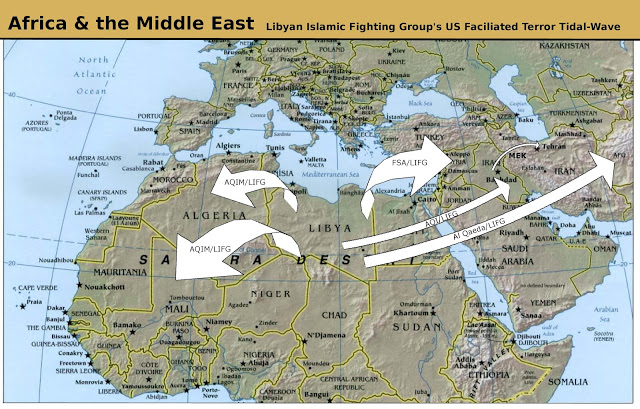
Image: NATO's intervention in Libya has
resurrected listed-terrorist organization and Al
Qaeda affiliate, LIFG. It had previously fought in
Iraq and Afghanistan, and now has fighters, cash
and weapons, all courtesy of NATO, spreading as
far west as Mali, and as far east as Syria. The
feared "global Caliphate" Neo-Cons have been
scaring Western children with for a decade is now
taking shape via US-Saudi, Israeli, and Qatari
machinations, not "Islam." In fact, real Muslims
have paid the highest price in fighting this real
"war against Western-funded terrorism."
....
LIFG, which with French arms, cash, and
diplomatic support, is now invading northern Syria
on behalf of NATO's attempted regime change there,
officially merged with Al Qaeda in 2007 according
to the US Army's West Point Combating Terrorism
Center (CTC). According to the CTC, AQIM and LIFG
share not only ideological goals, but strategic
and even tactical objectives. The weapons LIFG
received most certainly made their way into the
hands of AQIM on their way through the porous
borders of the Sahara Desert and into northern
Mali.
In fact, ABC News reported in their article, "Al
Qaeda Terror Group: We Benefit From' Libyan
Weapons," that:
"A leading member of an al Qaeda-affiliated
terror group indicated the organization may have
acquired some of the thousands of powerful weapons
that went missing in the chaos of the Libyan
uprising, stoking long-held fears of Western
officials."We have been one of the main
beneficiaries of the revolutions in the Arab
world," Mokhtar Belmokhtar, a leader of the north
Africa-based al Qaeda in the Islamic Maghreb
[AQIM], told the Mauritanian news agency ANI
Wednesday. "As for our benefiting from the
[Libyan] weapons, this is a natural thing in these
kinds of circumstances."
It is no coincidence that as the Libyan conflict
was drawing to a conclusion, conflict erupted in
northern Mali. It is part of a premeditated
geopolitical reordering that began with toppling
Libya, and since then, using it as a springboard
for invading other targeted nations, including
Mali, Algeria, and Syria with heavily armed,
NATO-funded and aided terrorists.
French involvement may drive AQIM and its
affiliates out of northern Mali, but they are
almost sure to end up in Algeria, most likely by
design.
Algeria was able to balk subversion during the
early phases of the US-engineered "Arab Spring" in
2011, but it surely has not escaped the attention
of the West who is in the midst of transforming a
region stretching from Africa to Beijing and
Moscow's doorsteps -- and in a fit of geopolitical
schizophrenia -- using terrorists both as a casus
belli to invade and as an inexhaustible mercenary
force to do it.

PREVIOUS
ISSUES | HOME
Read The Marxist-Leninist
Daily
Website: www.cpcml.ca Email:
editor@cpcml.ca
|



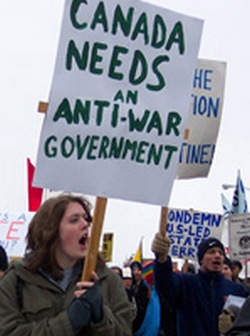
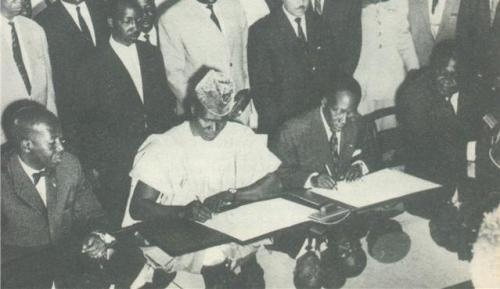



 The Obama
drone war doctrine is a departure from the
Bush-Rumsfeld-Cheney shock and awe torture regime
even though it preserves the worst of their
legacy. The drone war doctrine gives Obama a new
narrative -- that the U.S. is no longer engaged in
any wars. It includes the practice of establishing
large numbers of Lily-Pad U.S. military
bases around the world. The land based Lily-Pad
bases contain drones, long- range missiles and
mobile Special Forces. The U.S. navy on the High
Seas favoured by the Bush administration no longer
predominates but will continue to play a role by
complementing the Lily-Pads along with
the traditional strategically placed larger
military bases with their extensive use of fighter
planes, bombers, ground forces and space weapons,
especially space spying and telecommunications.
The Obama
drone war doctrine is a departure from the
Bush-Rumsfeld-Cheney shock and awe torture regime
even though it preserves the worst of their
legacy. The drone war doctrine gives Obama a new
narrative -- that the U.S. is no longer engaged in
any wars. It includes the practice of establishing
large numbers of Lily-Pad U.S. military
bases around the world. The land based Lily-Pad
bases contain drones, long- range missiles and
mobile Special Forces. The U.S. navy on the High
Seas favoured by the Bush administration no longer
predominates but will continue to play a role by
complementing the Lily-Pads along with
the traditional strategically placed larger
military bases with their extensive use of fighter
planes, bombers, ground forces and space weapons,
especially space spying and telecommunications.
 President
Obama's administration is reportedly drawing up a
rulebook that will set out the circumstances in
which targeted assassination by unmanned drones is
justified, including the killing of U.S. citizens.
Such a codification is meant to negate in theory
as well as practice the international and national
laws that prohibit such medieval practices,
especially those laws that arose from the defeat
of fascism during World War II.
President
Obama's administration is reportedly drawing up a
rulebook that will set out the circumstances in
which targeted assassination by unmanned drones is
justified, including the killing of U.S. citizens.
Such a codification is meant to negate in theory
as well as practice the international and national
laws that prohibit such medieval practices,
especially those laws that arose from the defeat
of fascism during World War II.





 In the same
paternalistic fashion the Harper government speaks
of the necessity to impose 19th century colonial
arrangements on First Nations to "help them"
release their "potential," Harper stated: "The
development of mining, oil and gas resources in
Africa is critical to the future prosperity of the
continent. The support announced today will help
African countries manage their natural resources
responsibly and transparently with a view to
accelerating sustainable economic growth, creating
jobs and reducing poverty."
In the same
paternalistic fashion the Harper government speaks
of the necessity to impose 19th century colonial
arrangements on First Nations to "help them"
release their "potential," Harper stated: "The
development of mining, oil and gas resources in
Africa is critical to the future prosperity of the
continent. The support announced today will help
African countries manage their natural resources
responsibly and transparently with a view to
accelerating sustainable economic growth, creating
jobs and reducing poverty."

